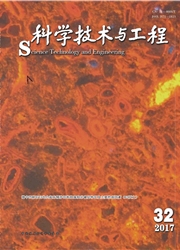

 中文摘要:
中文摘要:
为研究环亲和素A(CyclophilinA,CyPA)与肝癌转移的关系,用原核重组表达并纯化了CyPA。在不同浓度的CyPA刺激下,利用凝胶酶谱检测人肝癌细胞FHCC-98分泌基质金属蛋白酶(matrix metalloproteinases,MMPs)的能力。选择合适的刺激浓度,用BordenChamber检测肝癌细胞的侵袭能力。同时用抗CD147的抗体阻断CypA与其受体CD147的结合,检测阻断后FHCC-98在CyPA刺激下分泌MMPs及转移的能力。结果表明重组表达的CyPA能促进FHCC-98分泌激活或非激活形式的MMP-2并能促进FHCC-98的转移,而抗CD147的抗体能阻断其作用。实验结果表明:环亲和素A能与肝癌细胞表面的受体分子CD147结合,促进肝癌细胞的转移,提示其在“炎-癌”链中起到一定的作用。
 英文摘要:
英文摘要:
To study the function of CyPA on metastasis of hepatocelluar carcinoma( HCC), human CyPA is expressed and purified. Series of diluted CyPA were added to incubated HCC cell line FHCC-98 and zymography was used to assay secreted MMPs of FHCC-98. Borden Chamber was used to identify the invasion of FHCC-98 treated by CyPA with available concentration. The experiments were paralleled with treatment of anti-CD147 antibody which could block the CyPA binding to its receptor CD147. The results showed that the recombinant CyPA can promote FHCC-98 to secreted inactive or active form of MMP-2 and increase invasion of FHCC-98 which can be abolished by treated with anti-CD147 antibody. In conclusion, the results showed that CyPA can promote invasion of HCC cells via its receptor CD147 and suggest inflammatory cytokines such as CyPA be related to tumorgenesis or development.
 同期刊论文项目
同期刊论文项目
 同项目期刊论文
同项目期刊论文
 期刊信息
期刊信息
